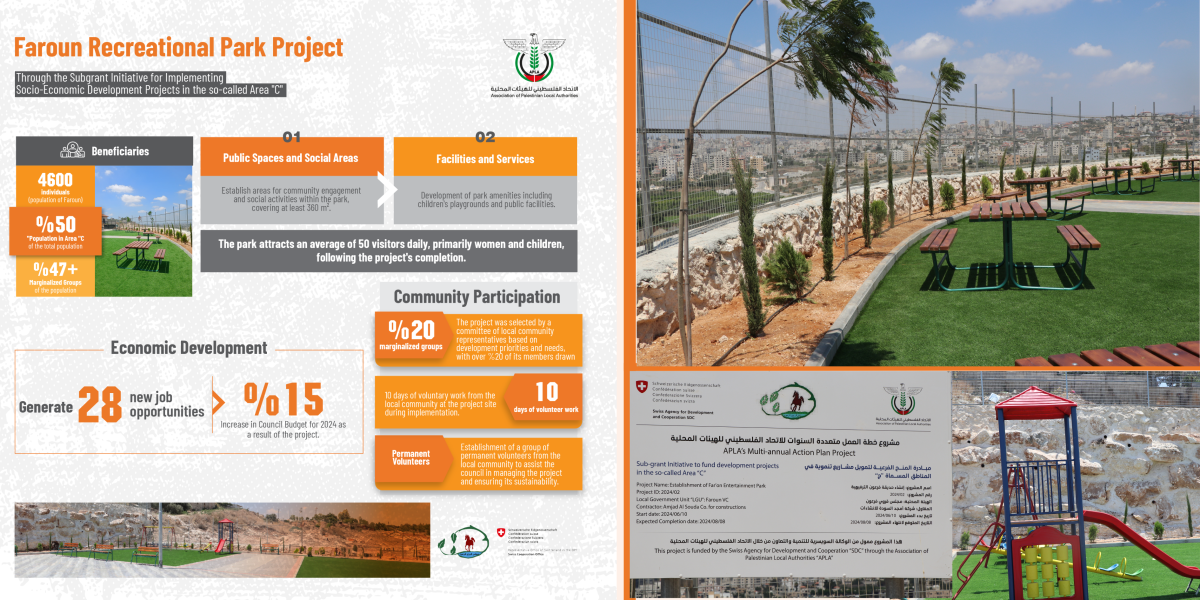Faroun | Recreational Park Project
In the village of Fara’un, one of the most pressing challenges faced by Palestinian communities—the absence of safe, inclusive public spaces—was transformed into an integrated development opportunity through the creation of the Fara’un Recreational Park. The project did more than provide a green refuge; it demonstrated that investing in social infrastructure can yield tangible economic and social returns.
The starting point was a clear gap: a population of 4,600 residents, nearly half of whom live in Area “C,” without a safe, equipped place where families could gather and children could play. This “public void” was not only a service deficit but a factor undermining social cohesion and limiting community interaction.
Backed by the Association of Palestinian Local Authorities (APLA), the project delivered a multidimensional response. The park was designed on a 360 m² plot to serve as an outdoor social hub, attracting around 50 women and children daily and directly addressing the isolation of these groups.
The social solution was coupled with a clear economic rationale. From its earliest stages, the project generated 28 new jobs, injecting immediate income into the local economy. Moreover, operating the park increased the village council’s budget by 15% in 2024, creating fiscal space for further improvements in education, sanitation, and infrastructure services.
Equally important, sustainability was embedded from the outset through community participation. The decision to establish the park came from a local committee that included women and youth, and its ownership was reinforced through 10 days of voluntary work. This ensured that the park was not only for the community but of the community.
The Fara’un Recreational Park provides a practical answer to a difficult development question: how can a social problem be turned into an economic opportunity? Here, the answer lies in reimagining social infrastructure not as a cost, but as a smart investment—one that strengthens the economy, empowers local governance, and rebuilds the social fabric of the community.


This project is part of the Sub-Grant Program, which is implemented by the Association of Palestinian Local Authorities (APLA) in Area C. The initiatives under this program are not merely about infrastructure improvement, but serve as practical tools to keep communities rooted in their land, expand spaces of life in the face of closure and confiscation, and turn development into a daily act of resilience that safeguards rights, memory, and existence.
funded by: the European Union and the Swiss Agency for Development and Cooperation (SDC)

 Key Indicators
Key Indicators
 Cultural Heritage
Cultural Heritage
 Public Parks
Public Parks
 Renewable Energy
Renewable Energy
